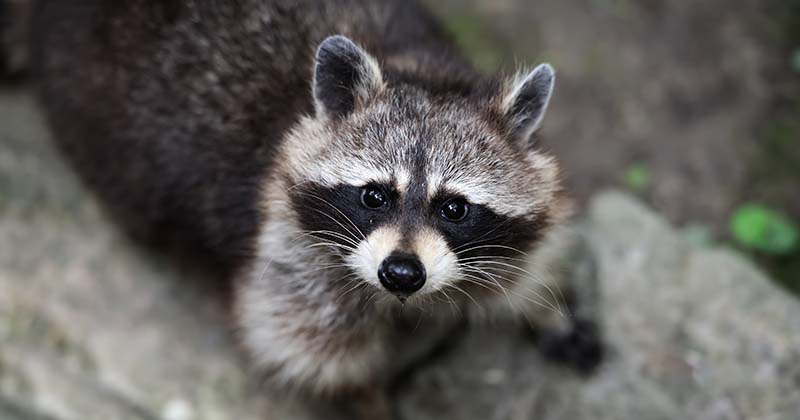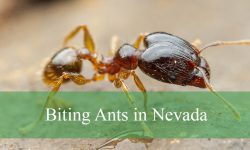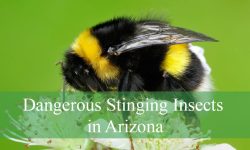Raccoons are undeniably fascinating creatures. With their masked faces, nimble paws, and curious personalities, many Texans have wondered if it’s possible to keep one as a pet. Their playful nature can make them seem like an adorable addition to your home—but the question remains: Is it legal to own a raccoon in Texas?
The answer isn’t as simple as a yes or no. Texas has unique wildlife laws that regulate which exotic or native species can be owned privately. While raccoons are native to Texas, owning one requires a specific understanding of state wildlife regulations, permit requirements, and public safety laws.
In this comprehensive guide, we’ll cover everything you need to know about raccoon ownership in Texas, including legality, required permits, health risks, ethical concerns, and better alternatives for wildlife lovers.
Is It Legal to Own a Raccoon in Texas?

Texas Wildlife Laws Explained
In Texas, raccoons are classified as nongame wildlife under the Texas Parks and Wildlife Department (TPWD). That means they’re not considered typical domestic animals like dogs or cats. Because of their wild status, it is generally illegal to keep a raccoon as a pet without a specific wildlife permit.
The Texas Administrative Code (Title 31, Part 2, Chapter 65) clearly outlines which animals require permits for captivity. Native species like raccoons fall under this law, meaning you can’t simply catch one in your backyard and bring it home.
Without the right authorization, owning, trapping, or breeding a raccoon in Texas is considered a violation of wildlife regulations and may result in fines, confiscation, or even criminal charges.
Permits and Exceptions
In limited situations, a permit may allow ownership or temporary care of a raccoon. These permits are typically granted to:
- Wildlife rehabilitators who are trained and licensed to care for injured or orphaned raccoons before releasing them back into the wild.
- Educational facilities or zoos that use animals for public education, scientific research, or conservation programs.
Private citizens, however, cannot legally keep raccoons as pets, even if the animal was found abandoned or orphaned. TPWD permits are strictly for wildlife management—not for personal companionship.
Why Texas Enforces These Restrictions
Texas wildlife laws prioritize ecological balance and public safety. Raccoons play a vital role in local ecosystems as scavengers and seed dispersers. Removing them from the wild or keeping them in captivity can disrupt local populations and spread diseases.
The law also protects people from potential injury or exposure to zoonotic illnesses, as raccoons can carry parasites and viruses transmissible to humans and pets.
Why Keeping a Raccoon as a Pet Can Be Dangerous
Unpredictable Behavior
Despite their cute looks, raccoons are not domesticated animals. They are naturally curious, mischievous, and intelligent. As they mature, raccoons often become aggressive, territorial, and destructive—especially during breeding seasons.
Pet raccoons are known to bite, scratch, and tear apart furniture, walls, and wiring. Even those raised from birth in captivity maintain wild instincts that can make them dangerous to keep indoors.
Health and Disease Risks
Raccoons are known carriers of several serious diseases, including:
- Rabies – a fatal virus that can spread to humans or pets through bites.
- Baylisascaris procyonis – a roundworm parasite that can infect humans and cause severe neurological damage.
- Leptospirosis and Salmonella – bacterial infections transmissible through contact with raccoon urine or feces.
Because of these risks, many veterinarians refuse to treat pet raccoons. Even vaccinated animals may still pose health hazards to humans and other pets.
Difficult Living Conditions
Raccoons require complex environments to thrive. They need large outdoor enclosures, opportunities for foraging, climbing, and digging, and a highly varied diet. Without proper enrichment, captive raccoons often develop behavioral issues, obesity, or stress-related illnesses.
Their care is expensive and demanding—making them unsuitable for most households.
Texas Penalties for Illegal Raccoon Ownership
Fines and Legal Consequences
If caught possessing a raccoon without a valid permit, Texans may face fines ranging from $200 to over $2,000, depending on the offense. Repeat violations or animal welfare concerns could also result in misdemeanor charges, animal confiscation, and a ban on future wildlife possession.
Wildlife officials take these laws seriously, and any illegal possession often leads to the animal being seized and euthanized, as relocation is not always possible due to disease control regulations.
Reporting and Enforcement
The Texas Parks and Wildlife Department (TPWD) and local animal control authorities actively enforce wildlife regulations. Citizens are encouraged to report illegal wildlife ownership to TPWD hotlines.
If you find an injured or orphaned raccoon, the legal and ethical action is to contact a licensed wildlife rehabilitator rather than attempting to care for it yourself.
Ethical Concerns About Keeping Raccoons as Pets
Impact on the Animal
Raccoons, even when born in captivity, remain wild at heart. Keeping them as pets restricts their natural behaviors, leading to frustration, aggression, and shortened lifespans. They are not socialized like domestic pets and rarely adapt fully to human environments.
Removing raccoons from the wild also disrupts local ecosystems and can harm conservation efforts for native species.
Public Safety and Community Risks
Because raccoons are nocturnal scavengers, escaped or released pet raccoons can become nuisance animals. They raid trash cans, damage property, and may spread disease to domestic animals.
Once a raccoon has been habituated to humans, it becomes difficult to reintegrate it into the wild, often leading to euthanasia.
Ethical Alternatives
Instead of trying to own a raccoon, Texans can contribute to wildlife conservation through other means. Volunteering at wildlife rehabilitation centers, donating to conservation programs, or supporting educational wildlife sanctuaries are all ethical ways to appreciate raccoons without endangering them.
Wildlife Rehabilitators and Education Permits
How Wildlife Rehabilitation Works
Licensed wildlife rehabilitators in Texas play an essential role in rescuing and caring for orphaned or injured raccoons. These professionals follow strict TPWD guidelines to ensure proper care, quarantine, and eventual release.
To become a rehabilitator, individuals must complete training, demonstrate knowledge of wildlife care, and maintain appropriate facilities that meet state standards.
Education Permits
Certain zoos, nature centers, or educational facilities may qualify for permits allowing raccoons for non-commercial educational purposes. These permits are not granted for personal ownership and are subject to inspection and strict welfare conditions.
Can You Adopt a Raccoon from a Rescue?
Some online platforms or private “rescue centers” claim to offer raccoons for adoption. Be extremely cautious—many of these operations are illegal or unlicensed.
Even if a raccoon was born in captivity, it is still considered wildlife under Texas law and requires authorization to possess. Purchasing or adopting one without proper documentation is unlawful.
Always verify that any rescue or facility is licensed under the Texas Parks and Wildlife Department and operates within legal limits. In most cases, raccoons cannot be adopted for private ownership in Texas.
Alternatives to Owning a Raccoon
Legal Exotic Pets in Texas
While raccoons are off-limits, Texas allows ownership of certain exotic animals under regulation. Some legal alternatives include:
- Sugar gliders
- Hedgehogs
- Ferrets
- Certain reptiles and birds
Each species has its own care requirements and permit rules, so always check TPWD or local county ordinances before adopting.
Supporting Wildlife Responsibly
Texans who admire raccoons can enjoy them safely by:
- Watching them in the wild from a distance.
- Setting up wildlife cameras or feeding stations (without direct contact).
- Supporting local wildlife rescue organizations.
These options allow you to appreciate raccoons’ intelligence and charm without breaking the law.
Frequently Asked Questions (FAQs)
Can I Keep a Baby Raccoon If I Find One Orphaned?
No. It is illegal to keep or raise an orphaned raccoon without a wildlife rehabilitation permit. The best course of action is to contact a licensed rehabilitator immediately.
Do Raccoons Make Good Pets?
No. Raccoons are wild animals and do not adapt well to domestic environments. They are destructive, unpredictable, and pose significant health risks.
Can I Get a Permit to Keep a Pet Raccoon in Texas?
Private ownership permits for pet raccoons are not available. Only licensed wildlife rehabilitators or educational facilities can legally possess raccoons under TPWD supervision.
What Happens If I’m Caught Owning a Raccoon?
You may face fines, criminal charges, and the animal will likely be confiscated. In many cases, illegal raccoons are euthanized due to disease control laws.
Is It Legal in Other States?
Some U.S. states—like Arkansas or Florida—allow raccoon ownership with specific permits. However, many others prohibit it outright. Always check your state’s wildlife regulations.
Conclusion
So, is it legal to own a raccoon in Texas? In short—no, not without a proper wildlife rehabilitation or educational permit. The state’s wildlife laws are designed to protect both people and animals, ensuring that raccoons remain where they belong: in the wild.
While the idea of owning a raccoon might seem exciting, the reality involves legal challenges, ethical issues, and safety risks. Instead of attempting to domesticate these wild creatures, Texans can celebrate them by protecting their habitats and supporting local conservation efforts.
Understanding and respecting Texas wildlife laws not only keeps you out of legal trouble but also ensures that raccoons continue to thrive as part of the state’s rich and diverse ecosystem.






